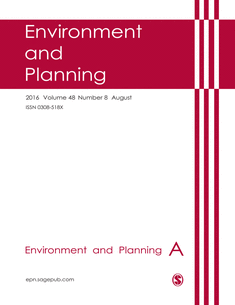
Environment and Planning A has just published a paper that Colin McFarlane and myself have written on the infra-making of sanitation at the margins of Turin and Mumbai. The paper informs debates on comparative urbanism and on urban infrastructure. In this work we bring to the fore two main ideas — first, that is possible compare cities and experiences at the urban margins that seem to share little in common (our ‘experimental comparison’); second, that is useful to think about the makeshifts of sanitation at the urban margins as a form of ‘infra-making’, namely as something mediated by more-than-human agencies and atmospheres. I am glad for this collaboration with Colin and I hope the paper will be able to bring some new life into debates around comparative and critical urbanism.
You can download this contribution clicking here (or here, if you are into Academia.edu). Title and abstract are below.
Life at the urban margins: Sanitation infra-making and the potential of experimental comparison
How is life at the urban margins made and remade? In this paper, we examine this question in relation to ‘sanitation urbanism’, and through attention to what we call ‘infra-making’, defined as the interstitial labour of human and non-human agencies and atmospheres that take place in the production of forms of sanitation. We do so through close engagement to sanitation at the margins of two very different cities across the global North–South divide: Turin and Mumbai. Despite the apparent impossibility of comparing such different cities, in the paper we develop a form of ‘experimental comparison’ that is oriented at understanding the everyday making of specific urban processes around urban sanitation. We argue that a comparative focus on how urban life at the margins is made and remade is important for critical urbanism. Our experimental comparison leads us to a discussion of the relationship between specification and generalisation, in which the latter is positioned not as an end-point but as an informant serving to enlighten understanding and intervention in specific contexts.
